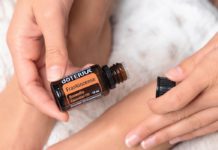Are there Natural Cleansers?
You desire a better skin but don`t know how to achieve it; well, you`re on the right blog. Just keep reading to see eight natural cleansers you can make at home, and loads of skincare tips to give you that skin of your dreams.
8 Natural Cleansers you Can Make at Home
Oatmeal Facial Cleanser
Colloidal oatmeal is a super effective facial cleanser with anti-inflammatory and antioxidant properties that eliminate skin dryness.
What you Need
- Honey
- 1 tablespoon of buttermilk
- 1 tablespoon of oatmeal
What to Do
- Make a fine paste with the ingredients.
- Apply it to your face and neck.
- Scrub gently in circular motions.
- Wash off with water.
- You may use the cleanser once a week for clear skin.
Chickpea Powder and Turmeric
Chickpea flour is popular as a base for face packs. Turmeric powder has got potent antioxidant and antimicrobial properties that reduce acne, lighten dark spots on the face, and leave the face feeling cleansed and fresh.
What you Need
- 2 tablespoons of chickpea powder
- 1 teaspoon of turmeric powder
- Milk
What to Do
- Make a paste with the ingredients and apply it to your face and neck.
- Let it stay for about 20 minutes before washing off thoroughly with some water.
- You may do this at least twice a week.
Honey
 Honey possesses emollient, humectant, and soothing effects. It delays down wrinkle formation and regulates the skin’s pH, making the skin glow. You only need three teaspoons of honey and some fresh milk for this cleanser.
Honey possesses emollient, humectant, and soothing effects. It delays down wrinkle formation and regulates the skin’s pH, making the skin glow. You only need three teaspoons of honey and some fresh milk for this cleanser.
What to Do
- Mix milk and honey to make a thick paste.
- Apply the paste to your face and neck.
- Let it stay for 30 seconds before scrubbing your skin lightly.
- Pat your face and neck dry.
- You may use this cleanser thrice a week.
Milk
Milk is an effective skin softener and facial cleanser. It also contains compounds that improve skin health. You only need some milk and salt for this remedy.
What to Do
- Make a facial cleanser using milk and salt.
- Apply this to your face and neck using a cotton ball.
- You may do this twice a week.
Cucumber and Curd
Curd soothes the skin so wonderfully. What`s more? The bioactive compounds in cucumber eliminate age spots and blemishes, leaving your skin feeling moisturized and reinvigorated. You only need a fresh cucumber and about three tablespoons of curd for this treatment.
What to Do
- Blend the cucumber.
- Add a few tablespoons of curd to form a thick paste.
- Apply this paste to your face and neck and let it stay for 10 minutes.
- Wash it off with some water.
- You may do this twice a week.
Lemon
The ascorbic acid content in lemon eliminates excessive blemishes and pigmentation from the face, and as a result, improves your complexion and makes your skin clearer. You only need a ripe lemon and cotton pad for this remedy.
What to Do
- Extract the juice from the lemon.
- Dab a cotton pad with it.
- Apply it to your face and neck.
- Let it stay for 10 minutes.
- Rinse thoroughly with water.
- You may do this twice a week.
Ensure you do a patch test before trying this remedy because lemon may irritate your skin. You should also avoid stepping out without applying sunscreen because lemon juice could make your skin photosensitive.
Coconut Oil
Coconut oil contains lauric acid and moisturizing properties that dryness of skin and make the skin clearer.
What you Need
- 1 teaspoon virgin coconut oil
- 1 teaspoon yogurt
- 1 teaspoon honey
What to Do
- Mix all the ingredients to get a thick mixture.
- Apply it to your face and let it stay for about 15 minutes.
- Rinse off thoroughly.
- Do this thrice a week.
Yogurt
The lactic acid in yogurt moisturizes the skin and eliminates dryness.
What you Need
- 1-2 tablespoons of yogurt
- 1 teaspoon of lemon juice
- 1 tablespoon of honey
What to Do
- Mix yogurt, lemon juice, and honey in a bowl.
- Apply the mixture to your face and neck.
- Rinse your face after 20 minutes.
- Try this cleanser once a week.
Debunking Skin Myths
Myth 1: Hot water baths open pores and purify them.
Fact: This is false, as hot water does not open up pores. If it has any effect, it is negative. Hot water dehydrates the skin and makes it more sensitive. As a defense mechanism, the skin produces more oil, and causes more complications as a result.
Myth 2: You can scrub acne and oiliness off the skin.
 Fact: No one can scrub the skin to get rid of acne the bacteria that cause the condition are deep in the follicles, under the skin. Attempting to clear skin oil by scrubbing would only cause the production of more oil. Acne-treating options are more for combatting oily skin.
Fact: No one can scrub the skin to get rid of acne the bacteria that cause the condition are deep in the follicles, under the skin. Attempting to clear skin oil by scrubbing would only cause the production of more oil. Acne-treating options are more for combatting oily skin.
Myth 3: Regular application of makeup will make you age faster.
Fact: Makeup doesn`t cause aging. In fact, there are some that protect and nourish the skin. The real challenge with makeup application is leaving it on to go to bed. People who don`t wash off their makeup breed dirt and oil on their faces, and could suffer early aging, among other skin issues.
Tips for Moisturizing your Skin
- Always apply a gentle moisturizer.
- Apply moisturizers that contain SPF or sunblock on top of the moisturizer to protect your skin from UV damage.
- Avoid using harsh body washes and soaps because they can make your skin dull and dry.
- Use more moisturizers during the winter months to fight the dryness that comes with the cold temperatures.
- Avoid using hot water to wash your face; use lukewarm water instead, as hot water saps moisture from the skin.
- Use moisturizers that are universal for all skin types, or find one that you`re sure is ideal for your specific skin type.
- In addition to facial moisturizers, use body moisturizers because every part of your skin deserves it.
- Ensure you do a patch test before using any skin products.
Skin Facts you Should Know
- The eyelids have the thinnest skin, while the feet have the thickest.
- The skin renews itself every 28 days.
- The skin sheds over 20,000 dead cells every minute.
- Harsh cosmetics dry out natural fats called lipids that give the skin`s outer layer some moisture and generally keep it healthy.
- Regular exercise improves toxin removal and boosts collagen production.
- The skin is the largest of all the body`s organs.
- The skin stores water, fat, vitamin D, and regulates body temperature.
- Adequate sleep replenishes the skin.
- Smoking affects the skin, as it deprives it of oxygen and vital nutrients by reducing blood flow.
- The skin accounts for about 15% of body weight.
- There are over 1,000 species of bacteria in the skin.
- Skin changes are sometimes signs of health changes.
- In hot weather conditions, the skin produces about three gallons of sweat daily, on average.
- The melanin content in the skin determines its color. Minute amounts of melanin make the skin light, while large amounts of melanin make the dark skin.
- It takes babies about six months to develop a permanent skin tone.
- Meissner corpuscles are touch receptors located on the clitoris, penis, fingertips, nipples, palms, lips, and tongue; they cause a high level of sensitivity in those parts of the body.
- Apocrine sweat gland, found in the armpits, genitals, and anus produces a fatty secretion which the bacteria in the skin feed on, hence produce a by-product that causes a foul odor.




